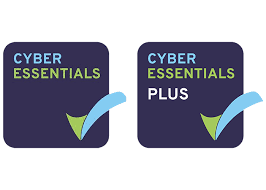In today’s digital world, protecting data has become critical for every business. Cyber security plays a vital role in safeguarding sensitive information from theft, loss, or unauthorised access — helping you maintain customer trust, comply with regulations, and avoid costly breaches.
In this article, we explain how cyber security protects data, why it matters, and what practical steps businesses can take.
What do we mean by “data”?
When we talk about data, we mean any valuable information stored or processed by a business, including:
- Personal data (names, addresses, phone numbers)
- Financial records (bank details, payment information)
- Employee data (HR files, payroll)
- Customer information (contact details, order history)
- Intellectual property (designs, patents, trade secrets)
- Business files (contracts, reports, communications)
Protecting this data is not just about locking it away — it’s about ensuring confidentiality, integrity, and availability.
How does cyber security protect data?
Cyber security protects data by putting in place multiple layers of defence, so that even if one fails, others remain in place. Here’s how:
1. Access control
- Strong passwords and multi-factor authentication (MFA) → Ensure only authorised users can access data
- Role-based permissions → Limit access to sensitive data to only those who need it
- Account monitoring → Detect suspicious or unauthorised login attempts
2. Encryption
- Encryption at rest → Protects stored data (on servers, hard drives, or cloud storage)
- Encryption in transit → Secures data as it moves across networks (emails, file transfers, online forms)
- End-to-end encryption → Ensures only the sender and intended recipient can read the data
3. Network security
- Firewalls → Block unauthorised access to networks
- VPNs (Virtual Private Networks) → Protect data transmitted over public or unsecured networks
- Intrusion detection and prevention systems (IDPS) → Identify and stop suspicious activity on the network
4. Endpoint protection
- Antivirus and anti-malware → Prevent malicious software from stealing or corrupting data
- Device encryption → Protect laptops, phones, and USB drives in case they are lost or stolen
- Mobile device management (MDM) → Enable secure management of mobile devices
5. Data backup and recovery
- Regular backups → Ensure critical data can be recovered after accidental deletion, hardware failure, or cyber attack
- Disaster recovery plans → Define clear steps to restore operations quickly after a data loss event
6. Monitoring and alerts
- Security event monitoring (SIEM) → Track access to data and alert on unusual or unauthorised activity
- Audit logs → Keep records of who accessed what and when
7. Employee awareness and training
- Phishing awareness training → Help staff spot fake emails trying to steal login details
- Clear policies on data handling → Define how data should be stored, shared, and disposed of securely
- Regular updates → Keep employees informed about new risks and best practices
Why is data protection important?
- Prevent data breaches → Avoid financial penalties, reputational damage, and legal consequences
- Maintain customer trust → Show customers you take their privacy seriously
- Comply with regulations → Meet legal requirements like the UK GDPR and Data Protection Act
- Ensure business continuity → Keep operations running smoothly, even after a cyber incident
Practical steps for businesses
- Use multi-factor authentication everywhere possible
- Keep all devices and software up to date
- Regularly back up important data
- Encrypt sensitive files, both in storage and when sending
- Provide ongoing staff training on cyber security
- Conduct regular risk assessments and reviews
Summary
Cyber security protects data by controlling access, encrypting information, securing networks and devices, and preparing for the unexpected. With the right tools, processes, and training, businesses can significantly reduce their risk and keep sensitive data safe.
If you need expert help to secure your business’s data, contact us — we’re here to help you assess your risks and implement the right protections.
Frequently Asked Questions (FAQs)
What is the main purpose of cyber security in data protection?
Cyber security protects data from unauthorised access, theft, corruption, or loss — ensuring only the right people can access the right information.
How does encryption help protect data?
Encryption scrambles data so that only authorised users with the right key can read it. This protects data whether it’s stored on a device or sent over the internet.
What is the difference between data privacy and data security?
Data privacy focuses on how data is collected, used, and shared, while data security focuses on how data is protected from unauthorised access and breaches.
Can small businesses benefit from cyber security?
Absolutely. Small businesses are often targeted because they have weaker defences. Simple measures like MFA, backups, and training go a long way.
How often should we back up our data?
Ideally, important business data should be backed up daily — or at least weekly — depending on how critical it is.


